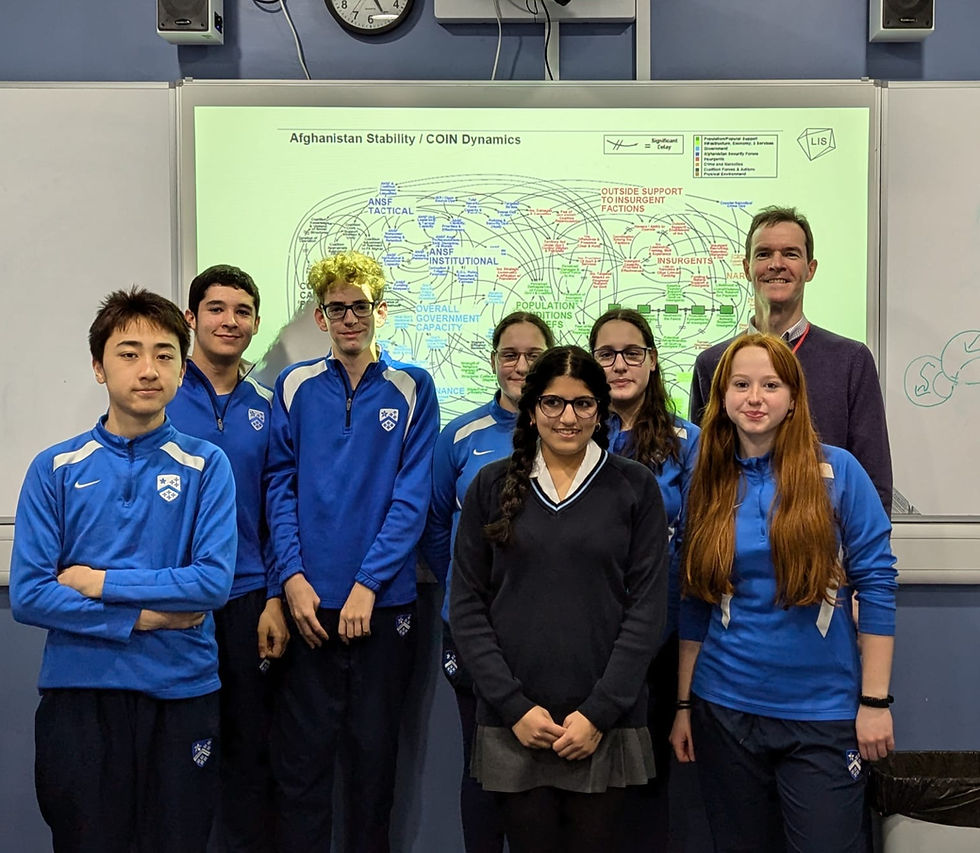The Power of Systems Thinking: Breaking Boundaries in a Global Curriculum
- Rob P
- Dec 23, 2024
- 2 min read
As part of our Beyond Diversity Project at Latymer Upper School, we were delighted to welcome Duncan Austin, a leading thinker in systems thinking from the London Interdisciplinary School, to deliver sessions for our students on the Local to Global Project. His visit underscored the transformative potential of systems thinking in broadening perspectives and equipping students to address complex, real-world challenges.
The Importance of Systems Thinking
In an increasingly interconnected world, the issues we face—climate change, inequality, and resource scarcity—are inherently complex. These challenges transcend traditional subject boundaries and demand holistic approaches. Systems thinking provides a framework for understanding how different parts of a system—be it social, environmental, or economic—interact and influence one another. It enables students to see the bigger picture and recognise the interdependencies that underpin global challenges.
Duncan's work - and sessions with us this term - emphasised this interconnectedness. With an extensive background in sustainability and a commitment to reframing global challenges through a systems lens, Duncan inspired our students to think critically about how we can collectively foster a more sustainable and equitable future. His sessions with our students highlighted the urgent need to move beyond siloed thinking, exploring how disciplines such as geography, science, history, and economics intersect in powerful ways.
Beyond Tokenistic Diversity
Curriculum diversity is often treated as a checkbox exercise—an addition of diverse authors, cultures, or topics. While these steps are valuable, they remain superficial if not paired with deeper structural questioning. Systems thinking challenges us to go further. It encourages students to interrogate the 'what,' 'why,' and 'how' of learning. What knowledge is prioritised? Why are certain perspectives dominant? How can global knowledges be authentically integrated into the classroom?
By breaking down disciplinary barriers, systems thinking invites space for alternative ways of knowing. Indigenous perspectives on sustainability, for example, often emphasise relational thinking—a worldview that aligns closely with systems thinking principles. Incorporating such perspectives enriches learning, making it both more inclusive and more attuned to global realities.
Empowering Students to Solve Real-World Challenges
A systems approach also emphasises the application of knowledge. In Duncan's sessions, students were encouraged to think about solutions to real-world challenges, using tools from multiple disciplines to craft innovative responses. Such an interdisciplinary mindset is crucial in preparing young people for the complexities of the 21st century, where problem-solving increasingly requires collaboration across fields and cultures.
A Call to Action
In our work, we are proud to be fostering a curriculum that embraces systems thinking as a core principle. Duncan's sessions were a powerful reminder that education is not just about content but about cultivating ways of thinking that challenge conventions, invite inclusivity, and inspire action.
To truly think beyond diversity, we must equip students to see and think in systems, empowering them to engage with complexity and to build a future that is as interconnected and diverse as the world they inhabit.





Comments